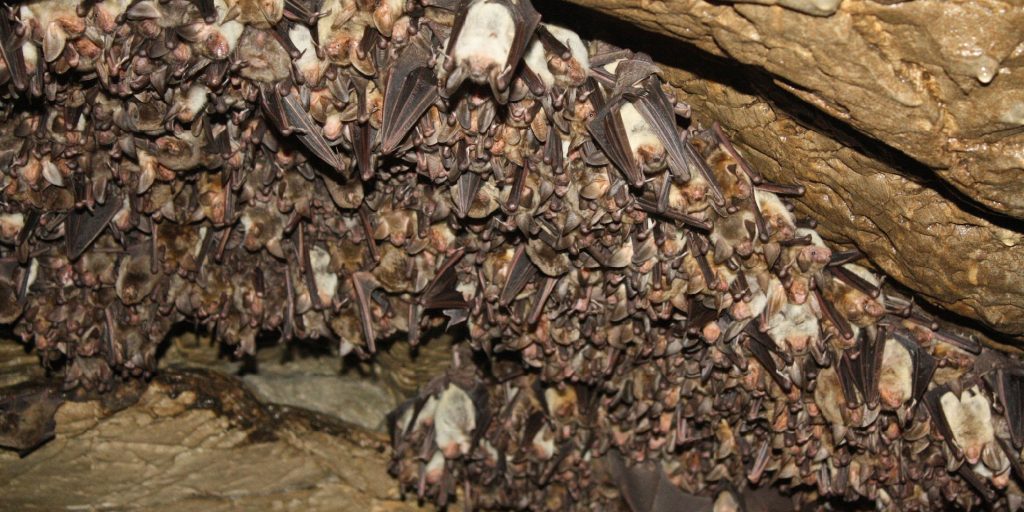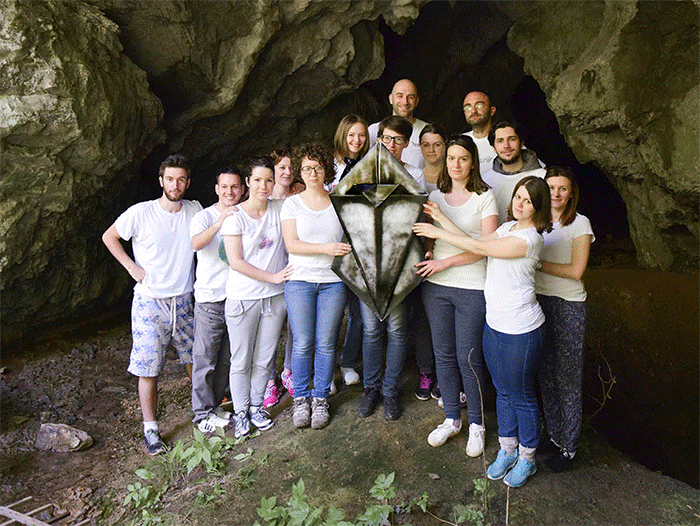On International Biodiversity Day, members of Center for Environment/Friends of the Earth Bosnia & Herzegovina visited the cave Mišarica near Banja Luka to highlight the insufficient protection and preservation of the highly biodiverse subterranean cave ecosystems, unfortunately threaten with destruction.
Subterranean ecosystems are a neglected centre of Bosnian and Herzegovinian natural diversity. One extraordinary example is Mišarica cave, a natural pearl located in the foothills of the Džombi?a rock, near the village of Bijeli Potok, ten kilometres east of Banja Luka. Huge bat maternity colonies form during the summer in Mišarica – the greater mouse-eared bat and Schreiber’s bent-winged bat. This colony is among the biggest in the Balkans.
“Every year the number of bats in this colony becomes drastically lower, and the main reason is the constant disturbance of bats by human activities like fires inside the cave and the destruction of subterranean structures, especially in the periods of the year when the bats are the most sensitive. The cave is vulnerable because it is accessible by local roads, so it is very important to make an adequate protection strategy to avoid or minimise ecological incidents“, said Jasmin Paši? from Center for Environment.
Unlike changeable surface habitats, subterranean habitats have relatively constant conditions. The animal populations that live in the caves are small in comparison with the populations on the surface, and many species are listed as endangered and are very sensitive to changes of habitat conditions.
“The fact that there is such a big bat maternity colony in this cave is a good enough argument to legally protect the Mišarica cave and save the already damaged ecosystem. The process of protection was initiated in 2007, when the study of protection was made and given to the Ministry, in order to give Mišarica protected status as a natural monument. The reason why this process was stopped is unknown, so we will ask the authorities to continue with the process and urgently protect this cave“, added Jasmin Paši?.
Over 50% of Bosnia and Herzegovina is covered with karst. This is a big territory with specific morphological and hydrological conditions, but also with rich underground biodiversity, which is mostly unstudied, underestimated and unprotected in Bosnia and Herzegovina.
International Biodiversity Day is declared by the United Nations to point how important is to stop the extinction of many animal and plant species, and how endangered different ecosystems are.








